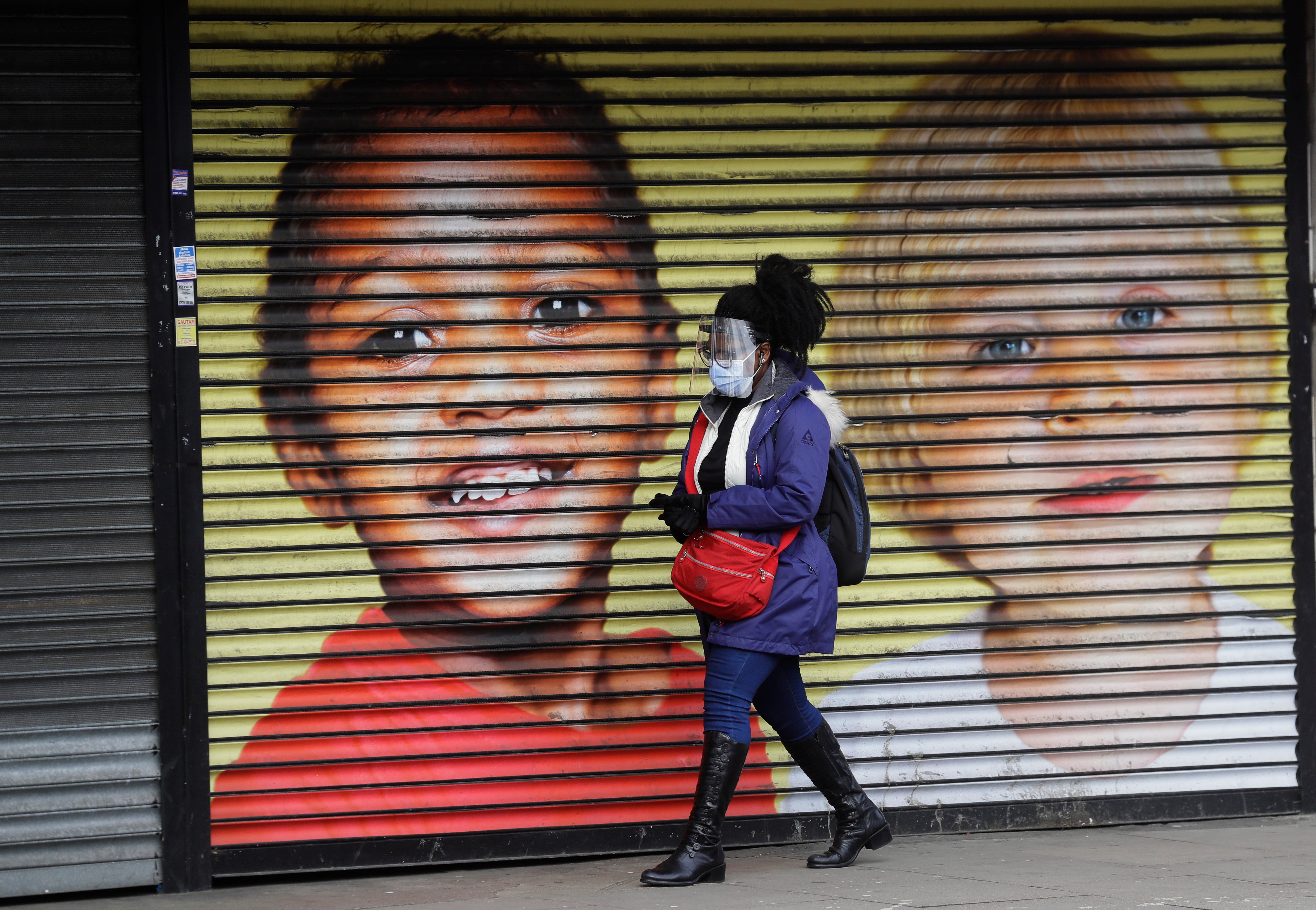England minorities: Higher COVID-19 cases, fewer vaccinated
England’s ethnic minority communities have higher levels of COVID-19 infection and lower levels of vaccine acceptance than other groups

Your support helps us to tell the story
From reproductive rights to climate change to Big Tech, The Independent is on the ground when the story is developing. Whether it's investigating the financials of Elon Musk's pro-Trump PAC or producing our latest documentary, 'The A Word', which shines a light on the American women fighting for reproductive rights, we know how important it is to parse out the facts from the messaging.
At such a critical moment in US history, we need reporters on the ground. Your donation allows us to keep sending journalists to speak to both sides of the story.
The Independent is trusted by Americans across the entire political spectrum. And unlike many other quality news outlets, we choose not to lock Americans out of our reporting and analysis with paywalls. We believe quality journalism should be available to everyone, paid for by those who can afford it.
Your support makes all the difference.England’s ethnic minority communities have higher levels of COVID-19 infections and lower levels of vaccine acceptance than other groups, according to a new study that highlights how the pandemic is worsening health inequalities
The study found that 92% of people across England either have received or would accept a vaccine. But that figure dropped to 87.6% for Asians and 72.5% for Blacks, according to the study released Thursday by Imperial College London.
Researchers also found that most people of all age groups produced disease-fighting antibodies after two doses of the Pfizer-BioNTech vaccine. Fewer people tested positive for antibodies after a single dose, with the proportion falling to 34.7% for those 80 and over.
Professor Helen Ward lead author of the report, said it was “encouraging” to see high levels of vaccine confidence and antibody response, while cautioning that the study didn’t assess the effectiveness of the vaccine.
“Our findings suggest that it is very important for people to take up the second dose when it is offered,” she said. “We know that some groups have concerns about the vaccine, including some people at increased risk from COVID-19, so it is really important that they have opportunities to discuss these and find out more.”
The findings are based on a study of more than 154,000 people who tested themselves between Jan. 26 and Feb. 8 using a home finger prick test. Participants also answered questions about their willingness to be vaccinated.
The study found that 13.9% of the population had antibodies either from infection or vaccination. Antibody prevalence in unvaccinated individuals was highest among Blacks, 22.1%, and Asians, 20%.
Rokhsana Fiaz, mayor of the London borough of Newham, said issues surrounding poverty, unequal access to health care and the concerns of ethnic minorities were well known at the start of the pandemic and should have been factored into the mass vaccination program from the beginning.
While the British government has so far focused on large-scale vaccination sites, Fiaz called for a “hyper-local” strategy to reach more people. Newham, a borough where Black, Asian and other minority communities make up 72% of the population, is now having trials offering vaccinations through local pharmacies and religious groups, she said.
“In order to address the challenges and the risks for communities from certain minority ethnic groups, we’ve got to address those fundamental issues of deprivation, inequality and poverty,” Diaz told the BBC. “And we’ve got to be able to address issues of health inequity that have been long-standing features in this country.”
___
Follow AP’s pandemic coverage at https://apnews.com/hub/coronavirus-pandemic, https://apnews.com/hub/coronavirus-vaccine and https://apnews.com/UnderstandingtheOutbreak